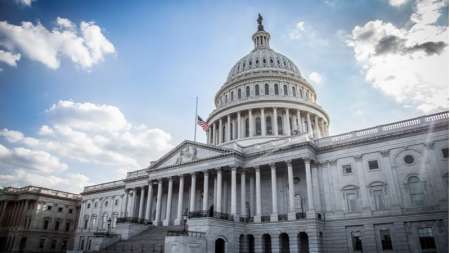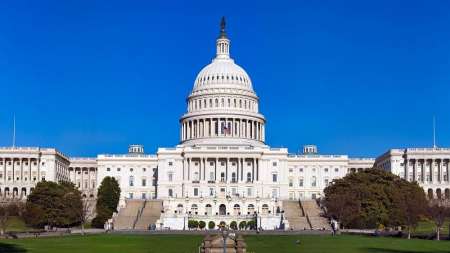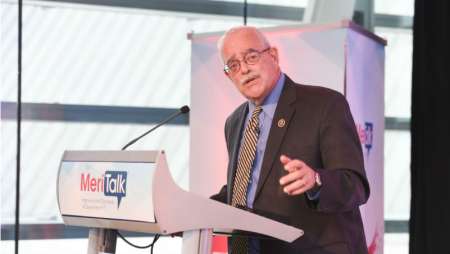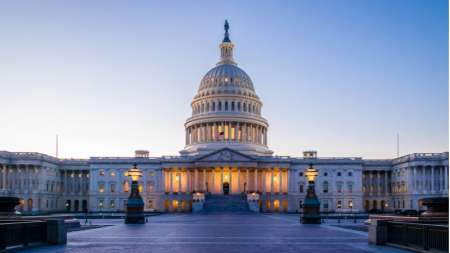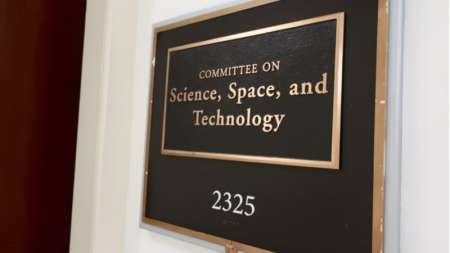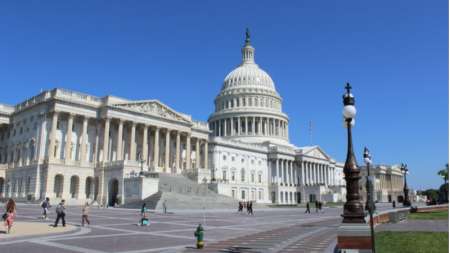As the House prepares to consider the annual defense policy bill later this week, lawmakers are continuing to review several key tech provisions within the sweeping 1,800-page compromise bill, which dropped over the weekend. […]
The House last week voted to approve a bill that would require agencies to share custom-developed source code with each other in an effort to reduce duplicative software contracts across the Federal government. […]
Sen. Ron Wyden, D-Ore., today unveiled draft legislation that would light a fire under the Federal Communications Commission (FCC) to create a tough new set of cybersecurity rules for telecommunications services providers following news in October of China-sponsored Salt Typhoon hacks into the networks of several big U.S. carriers including AT&T, Verizon, and Lumen. […]
Sen. Marsha Blackburn, R-Tenn., last week introduced a package of seven bills – known as the DOGE Acts – aimed at holding the Federal government more accountable for managing taxpayer dollars. […]
After months of back-and-forth, the House and Senate have finally reached a compromise on the National Defense Authorization Act (NDAA) for Fiscal Year (FY) 2025, agreeing on key provisions for artificial intelligence (AI), cybersecurity, and a historic pay raise for junior service members. […]
A bipartisan pair of senators is looking to promote a more competitive playing field for vendors of cloud computing and artificial intelligence technologies looking to sell those services to the Pentagon. […]
The House voted on Wednesday to approve bipartisan legislation that aims to improve the management of how the Federal government purchases and uses software. […]
New legislation introduced to the Senate on Tuesday would provide $2.7 billion in Federal funding to boost quantum research and development (R&D) at Federal science agencies and government funded research centers over the next five years. […]
New legislation aimed at improving the transparency of artificial intelligence-powered products in financial services was introduced on Wednesday. […]
A new bipartisan bill from Sens. Bill Cassidy, R-La., Maggie Hassan, D-N.H., John Cornyn, R-Texas, and Mark Warner, D-Va., is aiming to bolster cybersecurity in the healthcare sector and safeguard Americans’ health data. […]
Reps. Gerry Connolly, D-Va., and Dale Strong, R-Ala., introduced a new bipartisan bill on Thursday that aims to improve and expand the CyberCorps Scholarship for Service (SFS) Program. […]
Reps. Ted Lieu, D-Calif., and Kevin Kiley, R-Calif., introduced a bipartisan bill on Friday that would increase the maximum penalties for various kinds of fraud committed with the help of AI technology. […]
Legislation to bolster national security by keeping adversarial technology out of Federal government supply chains is headed to the Senate after passing the House on Nov. 12. […]
National Cyber Director (NCD) Harry Coker Wednesday urged Congress to pass bipartisan legislation that would bolster the Biden administration’s efforts to harmonize cybersecurity regulations across the Federal government. […]
Bipartisan legislation introduced in the House last week would direct the Department of Justice (DoJ) to create a public-facing Federal database that shares information on human trafficking in the United States. […]
A new Senate bill is aiming to make taxpayers’ lives easier by requiring the Internal Revenue Service to create a dashboard that increases accessibility of online tax refund information by showing tax return backlogs and wait times. […]
A bipartisan pair of senators is pushing the Department of Defense (DoD) to provide more information on its efforts to advance quantum sensing technology – something the senators note is necessary to protect U.S. national security and outpace potential threats from China. […]
The Department of Health and Human Services (HHS) would be required to develop and implement “tough” minimum cybersecurity standards for the healthcare sector under legislation introduced to the Senate on Thursday. […]
A bipartisan bill that would require the National Institute of Standards and Technology (NIST) to incorporate AI systems into the national vulnerability database won approval from the House Science, Space, and Technology Committee on Wednesday. […]
Rep. Gerry Connolly, D-Va., and Sen. Mark Warner, D-Va., on Sept. 25 reintroduced the Chai Suthammanont Healthy Federal Workplaces Act – a bill designed to protect Federal employees during public health emergencies. […]
Legislation introduced in the House on Wednesday aims to create a cybersecurity training program that will provide Federal scholarship support in exchange for two years of service with governments at all levels in cybersecurity roles. […]
The House on Sept. 18 approved the Future Uses of Technology Upholding Reliable and Enhanced (FUTURE) Networks Act by a vote of 393-22. […]
Two key Federal workforce bills won approval from the Senate Homeland Security and Governmental Affairs Committee (HSGAC) today. […]
The House of Representatives returned from August recess on Monday and got to work passing key pieces of bipartisan legislation to bolster communications security and modernize Congress’ work. […]
Reps. Jason Crow, D-Colo., Brian Fitzpatrick, R-Penn., and Andy Kim, D-N.J., this week introduced the Healthcare Cybersecurity Act to require the Cybersecurity and Infrastructure Security Agency (CISA) to coordinate with the Department of Health and Human Services (HHS) on improving cybersecurity activities. […]
A bipartisan pair of representatives introduced the National Science Foundation (NSF) AI Education Act in the House last week, offering a companion to the Senate bill that was introduced earlier this year. […]
Select Federal financial regulatory agencies will be able to experiment with the use of artificial intelligence tools if a newly introduced bipartisan, bicameral bill is passed. […]
New bipartisan legislation would require the Department of Homeland Security (DHS) to evaluate how terrorist organizations use foreign mobile apps to recruit members, promote ideologies, and receive funding. […]
The Senate Appropriations Committee voted on Thursday to approve fiscal year (FY) 2025 spending legislation that includes $25 million in funding for the Technology Modernization Fund (TMF). […]
Rep. Nancy Mace, R-S.C., introduced a new bill on Tuesday that would direct the Department of Veterans Affairs (VA) to use blockchain technology to improve how veterans receive their benefits and services. […]

